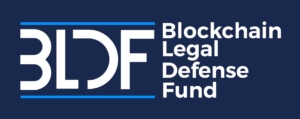The United States Court of Appeals for the Fifth Circuit recently made a significant ruling in the case of Van Loon et al. v. Department of the Treasury, which examined the legality of the U.S. Treasury Department’s classification of Tornado Cash as a Specially Designated National (SDN) under sanctions law. This ruling represents an important moment for blockchain technology and its relationship with regulatory frameworks.
Case Background
Tornado Cash is an open-source cryptocurrency mixing service that enhances transaction privacy by utilizing smart contracts to anonymize digital asset transfers. These smart contracts are immutable and operate independently on the Ethereum blockchain, meaning they cannot be altered or controlled once they are deployed.
In 2022, the U.S. Treasury Department’s Office of Foreign Assets Control (OFAC) imposed sanctions on Tornado Cash, claiming it was misused by North Korea’s Lazarus Group to launder stolen cryptocurrency associated with cybercrimes. The sanctions resulted in the blacklisting of 53 Ethereum addresses connected to Tornado Cash smart contracts, effectively prohibiting U.S. individuals from interacting with them. A group of Tornado Cash users contested the sanctions, arguing that OFAC had exceeded its authority under the International Emergency Economic Powers Act (IEEPA). They specifically contended that the immutable smart contracts of Tornado Cash should not be classified as “property” subject to sanctions.
The Fifth Circuit’s Ruling
The Fifth Circuit overturned the lower court’s ruling in favor of OFAC, clearly criticizing the agency’s overreach. The opinion, written by Circuit Judge Don Willett, highlighted several key points:
1. Immutable Smart Contracts Are Not “Property”
The court pointed out that “property,” in its traditional sense, must be something that can be owned. Once deployed, immutable smart contracts cannot be changed, controlled, or owned by any person or organization. Therefore, they do not qualify as “property” under IEEPA.
2. OFAC’s Regulatory Definitions Are Not Unlimited
Although OFAC’s regulations provide a broad definition of property, which includes contracts and services, the court clarified that these definitions still require the item in question to be ownable or controllable. Immutable smart contracts do not satisfy this requirement.
3. Judicial Restraint and Congressional Intent
Recognizing the real-world challenges posed by decentralized technologies, the court emphasized that any legislative changes needed to address these issues must come from Congress, not through judicial interpretation. Judge Willett succinctly remarked, “Legislating is Congress’s job — and Congress’s alone.”
Implications for Blockchain and Open-Source Communities
This ruling has significant implications for blockchain technology, especially for developers and users of decentralized protocols:
Preserving Decentralization: By acknowledging the distinct nature of immutable smart contracts, the court has highlighted the need to differentiate decentralized tools from the individuals or entities that may misuse them.
Regulatory Boundaries: The decision reinforces that regulatory agencies cannot extend their authority beyond the clear limits established by Congress, even with the rise of new technologies.
Call for Legislative Action: The court’s opinion underscores the necessity for updated legal frameworks to tackle the challenges posed by decentralized and open-source technologies, a responsibility that.
What’s Next?
While the Fifth Circuit’s decision marks a significant win for the plaintiffs and the wider blockchain community, it doesn’t eliminate all the regulatory uncertainties surrounding cryptocurrency mixers and decentralized protocols. Agencies like OFAC may pursue legislative or policy changes to fill perceived gaps in their authority.
At this point, this ruling establishes an important precedent, confirming that decentralized tools such as immutable smart contracts function outside the traditional property concepts defined by current U.S. sanctions law.
The Van Loon decision highlights the strength of decentralization and the necessity for thoughtful, tech-savvy regulation. As the blockchain ecosystem continues to expand, this case reminds us that legal frameworks need to evolve responsibly, ensuring that innovation isn’t hindered by excessive regulation.
The Blockchain Legal Defense Fund remains dedicated to protecting the rights of blockchain innovators and promoting a regulatory environment that honors these principles of decentralization and open-source development. If you or your organization face legal challenges related to blockchain technology, we’re here to help.







